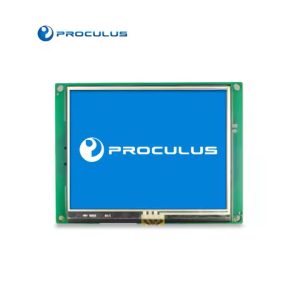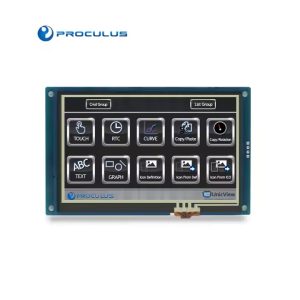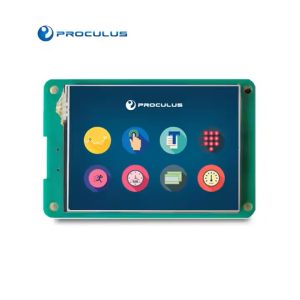What Are the Applications of Industrial LCD Displays in the Internet of Things?
Over the past decade, the Internet of Things (IoT) has swept the world, and we have witnessed the connection of various devices through networks. The so-called Internet is everything we are familiar with around us. Anything we can see will be transformed into the IoT. From small-scale smart homes to national governance and even military operations, everything will be connected, forming a new network of everything interconnected. So, what are the applications of industrial TFT display screens in the IoT?
LCD display modules in industrial, electric power, and petrochemical industries
By using RFID and other technologies, the collection, reading, transmission, and smart inspection of information can be achieved, greatly improving work efficiency. Due to the unique nature of the industry, high work intensity, complex production environments, and high equipment failure rates are all problems faced by the manufacturing industry. These wholesale TFT LCD displays can maintain perfect performance in harsh environments.
LCD display modules in public utilities and industry regulation
Public utilities involve a wide range of fields, such as fixed asset management and ticket inspection. The complexity of the projects also poses many challenges to display screens and touch technology. With customized product functionality, customers can be provided with personalized mobile information solutions that meet different requirements, such as achieving clear and high-quality images and multiple touches and adapting to complex environmental conditions and visibility under sunlight.
LCD display modules in production and logistics
The use of advanced tracking technology for real-time tracking and supervision of products in various links such as production, distribution, sales, scanning, testing, analysis, processing, automatic packaging, and classification has become a development trend in the production and logistics industries. As the core component, industrial LCD display modules provided by TFT LCD screen manufacturers must withstand various adverse industrial environments and frequent usage requirements. The display screen must have high reliability to be competent.
LCD display modules in smart terminals
Smart terminals represented by smartphones, tablets, and smart TVs are spreading rapidly. Now, intelligence is not only limited to televisions, air conditioners, and lights but will also be integrated into every aspect of our lives, such as smart homes, medical devices, wearables, smart cars, and more. All these require LCD display modules as their input and output to achieve their functions.
Industrial display screens have much worse application environments than ordinary commercial display screens. They require continuous operation 24/7 and powered on 365 days a year. Therefore, industrial display screens must be more stable, and their performance requirements are higher than those of ordinary display screens, such as the voltage withstand, current, humidity, high and low temperatures of electronic components. Also, the design direction is different, such as TVs that will age after 8 hours of use. Industrial LCD display modules, however, will not show aging characteristics until they are powered on 24 hours a day under high temperature and high humidity conditions.

 English
English


